How to Plan a Wedding in India? The Ultimate Step-by-Step Guide
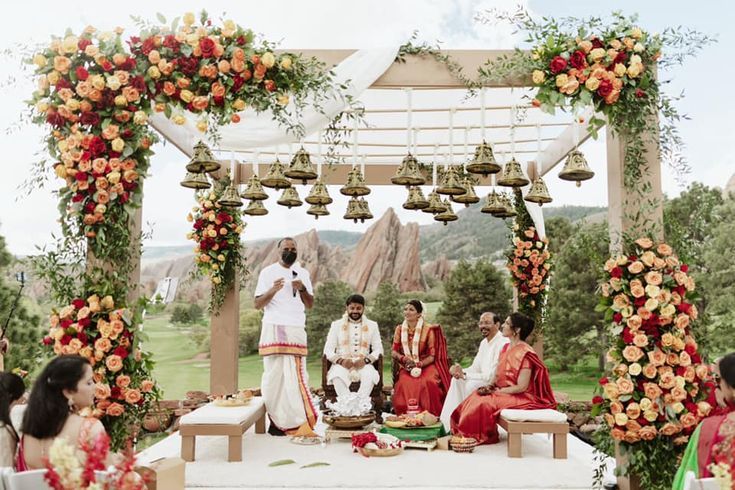
1. Decide Your Budget

Setting a wedding budget is the cornerstone of planning in India, where celebrations can range from intimate to opulent. Begin by understanding how much your family is comfortable spending and whether both sides will contribute. Divide your budget across categories—venue, food, attire, décor, entertainment, and photography—so you know where to allocate funds and where to cut back if needed.
Always include a buffer (10–15%) for last-minute expenses or emergencies. Using a wedding budget planner or spreadsheet helps keep your finances on track. Remember, a beautiful wedding is more about moments and meaning than sheer expenditure.
2. Choose the Right Venue
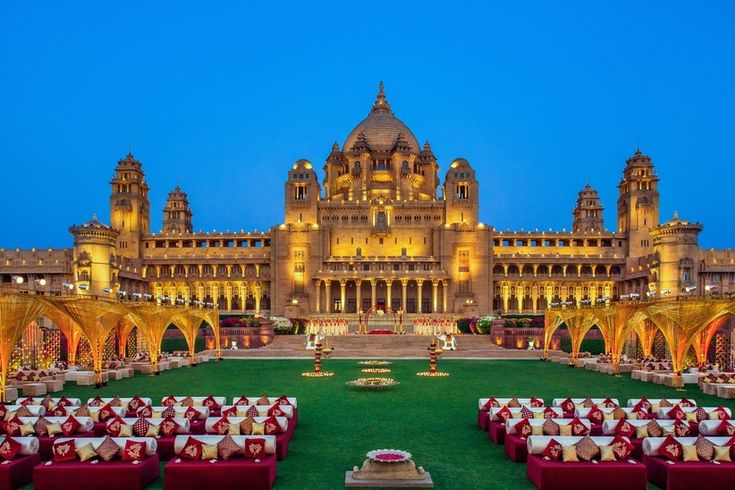
In India, the wedding venue sets the tone for your entire celebration. Whether it's a grand palace in Rajasthan, a beachside resort in Goa, or a local banquet hall, the choice should reflect your wedding theme, guest list size, and budget.
Consider factors such as accessibility, accommodation options nearby for out-of-town guests, and in-house services like catering or décor support. Also, look into whether the venue allows for external vendors if you have preferred decorators or caterers in mind.
Popular venues often get booked a year in advance, especially during peak wedding seasons (November to February and April to June), so secure your venue early. Take time to visit short-listed locations and ask for detailed quotations before making your decision.
3. Plan the Pre-Wedding Functions
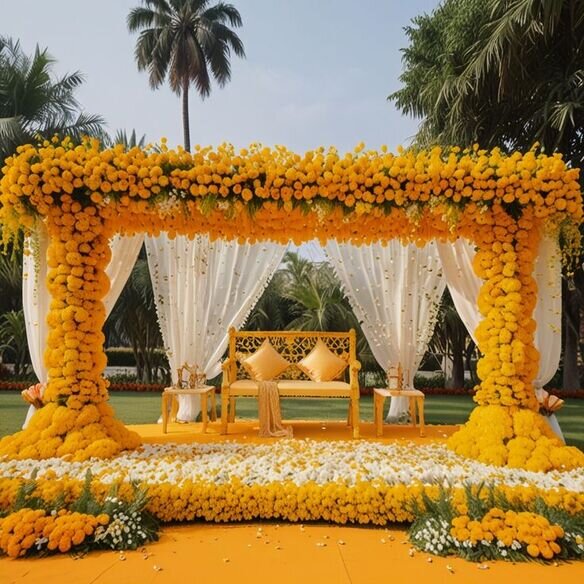
Pre-wedding functions in Indian weddings are not only deeply traditional but also moments of joy and bonding between families. These include the Roka, Mehndi, Haldi, Sangeet, and Engagement ceremonies. Each has its own cultural significance and is often celebrated with vibrant decor, music, and themed outfits.
Start by finalizing the dates and venues for these events. Some couples prefer clubbing two functions together, like Mehndi and Sangeet, for ease and budget management. Choose themes and color palettes early so your decorators and planners can align accordingly.
Entertainment plays a big role — think live music for the Mehndi, DJs or dance troupes for the Sangeet, and traditional folk artists for the Haldi. Ensure you hire professional photographers to capture these candid, emotional, and energetic moments leading up to the big day.
4. Finalize Guest List & Send Invites
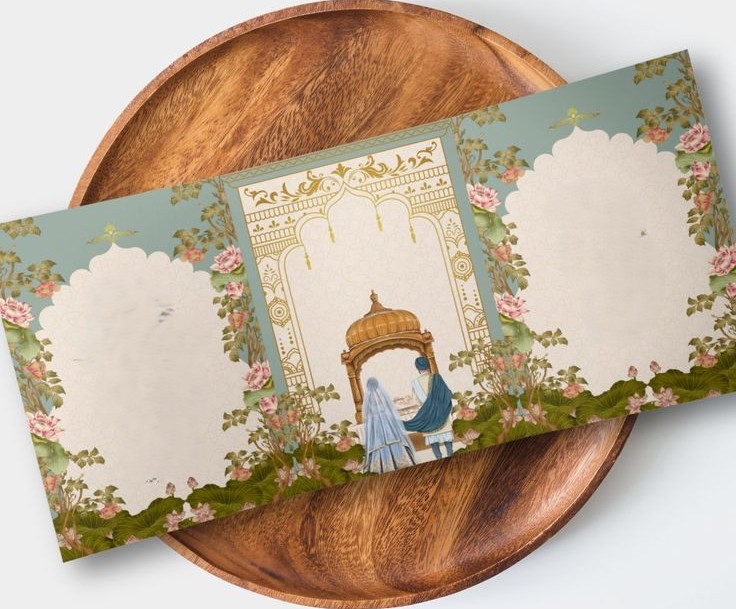
Creating the guest list is one of the most sensitive and strategic parts of wedding planning. Begin by categorizing guests into close family, extended relatives, friends, and colleagues. Consider your budget and venue capacity while finalizing numbers. Indian weddings often have multiple functions, so you can create separate lists for each event.
Once your list is ready, it’s time to send out invites. Traditional printed invitations are still a cherished norm, but digital invites and wedding websites are gaining popularity, especially for eco-conscious couples. They’re cost-effective and easy to update with schedules, maps, and accommodation details.
Send your invitations at least 4–6 weeks in advance for local guests and even earlier for those traveling from abroad. Be sure to include RSVP details and consider following up with phone calls or messages, especially for close relatives. This ensures better event planning and seating arrangements.
5. Book Vendors Early

Securing reliable and experienced vendors early in your planning journey can make or break your wedding experience. In India, where peak wedding seasons often lead to booked-out schedules, it's essential to lock in your preferred caterers, decorators, photographers, makeup artists, and entertainers well in advance—ideally 6–9 months before the big day.
Begin by shortlisting vendors based on reviews, portfolios, and recommendations. Schedule meetings or video calls to discuss your vision, expectations, and budget. Ask about past weddings they've worked on, and request sample work or trial services if possible. A good vendor should be flexible, transparent with pricing, and responsive to your queries.
Always sign detailed contracts with vendors outlining deliverables, timelines, and cancellation policies. This avoids misunderstandings and ensures everyone is on the same page. Booking vendors early also gives you time to coordinate their roles efficiently, creating a smooth and stress-free experience.
6. Plan Your Wedding Outfits

In Indian weddings, attire is more than just fashion—it’s a celebration of tradition, culture, and personal style. Each function often demands a unique outfit, from vibrant lehengas and sherwanis for the sangeet or haldi, to regal sarees and intricately embroidered ensembles for the wedding day itself.
Start shopping 4–6 months in advance to allow ample time for custom tailoring, trial fittings, and any last-minute adjustments. Visit trusted designers or boutiques, and consider your event themes, weather, and comfort while choosing fabrics and styles. Don't forget about accessories like jewelry, footwear, and turbans or dupattas.
Coordinate with your partner and family to ensure color harmony across group photos and functions. Also, plan for outfit changes if required during long events. Keeping a checklist for each event's look helps avoid last-minute chaos and ensures you feel confident and radiant on your big day.
7. Food & Catering
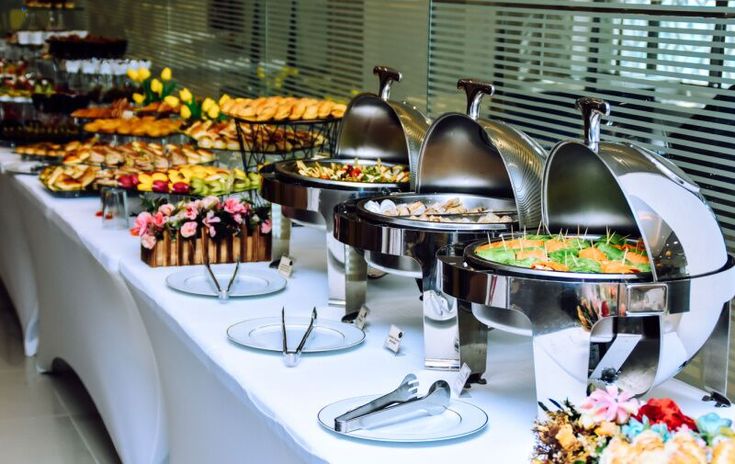
Food is often the highlight of any Indian wedding and leaves a lasting impression on guests. From regional delicacies to modern fusion dishes, your menu should reflect your cultural roots, preferences, and the overall theme of the celebration. Consider offering a mix of vegetarian and non-vegetarian options if your traditions allow, and don't forget to include popular street food counters or live stations for added excitement.
Start by shortlisting experienced caterers who have handled weddings similar in scale to yours. Always ask for a tasting session before finalizing the menu. Depending on the duration and number of events (like mehndi, haldi, sangeet, reception), you’ll need to curate a variety of meals—breakfast, lunch, hi-tea, and dinner, each with different themes or cuisines.
Ensure that your caterer can handle dietary restrictions and special requests like Jain or vegan options. Presentation and service are just as important as taste, so make sure the team is well-staffed and organized. A well-planned food experience not only satisfies your guests but becomes one of the most talked-about aspects of your wedding.
8. Décor and Themes
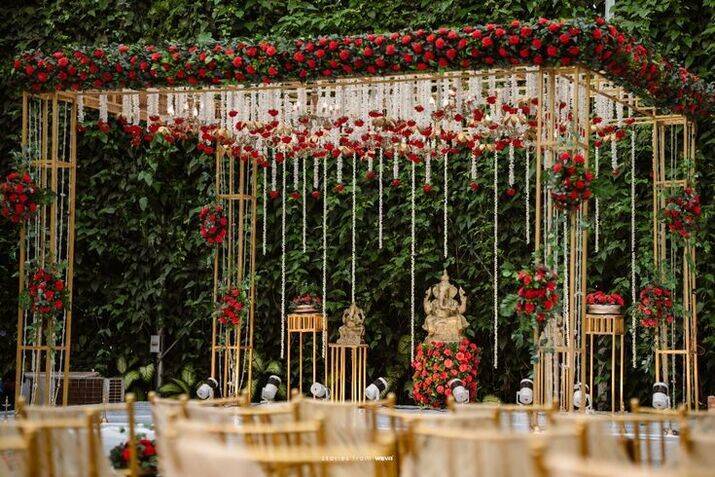
The décor and overall theme set the tone for your entire wedding celebration. Indian weddings are known for their grandeur, vibrant colors, and intricate designs—so choosing the right theme can turn your dream into a visual reality. Whether you envision a royal palace-inspired setting, a minimalist modern look, or a floral paradise, the key is consistency and attention to detail across all events.
Start by finalizing a color palette or central concept—like a Rajasthani royal theme, Mughal garden setup, or a pastel floral elegance. Ensure that your wedding planner or decorator understands your aesthetic and is experienced in executing similar themes. Every element—mandap, entrance, seating, stage, table arrangements, and lighting—should align with the chosen vibe.
Lighting plays a major role in enhancing décor, especially for evening functions. Use fairy lights, chandeliers, and LED installations to bring a magical feel. Don’t forget to incorporate personalized touches like photo displays, name monograms, or themed signboards to add uniqueness. A well-executed theme elevates the guest experience and creates an unforgettable visual memory.
9. Rituals and Ceremonies
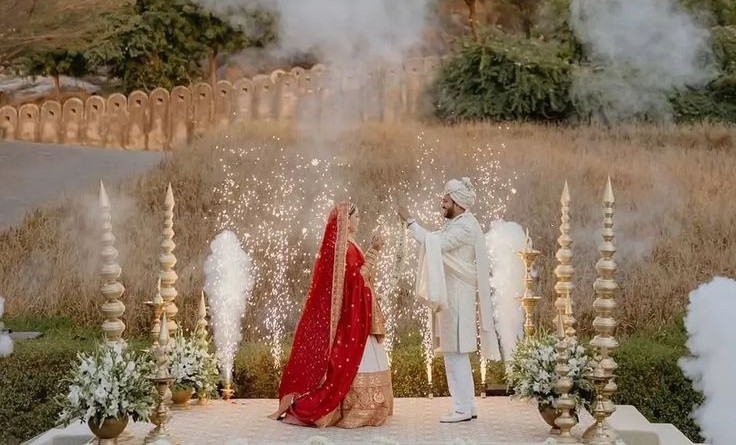
Indian weddings are deeply rooted in tradition, with rituals that vary by region, religion, and community. From the sacred Ganesh Puja to the colorful Mehndi and the emotional Vidaai, each ceremony carries symbolic meaning and cultural significance. Understanding and planning these rituals in advance ensures that nothing important is missed and that everything flows smoothly.
Common Hindu wedding ceremonies include the Haldi (turmeric ceremony), Mehndi (henna application), Sangeet (music night), the Wedding (Vivah or Shaadi), and Reception. South Indian weddings may include unique customs like Kashi Yatra or Mangalsutra tying, while Sikh weddings feature the Anand Karaj. Each ritual requires specific arrangements—like pooja items, traditional outfits, and venue settings—which should be coordinated with your planner and priest or officiant.
Make time for practice or walkthroughs for major rituals like the pheras or jaimala so that you and your families are well-prepared. Involve elders for guidance and to maintain authenticity. When ceremonies are honored and respected, they bring depth, meaning, and spiritual richness to your wedding celebration.
10. Entertainment

Entertainment plays a major role in Indian weddings, turning the celebration into a vibrant and unforgettable experience. From live bands and DJs to folk dancers and celebrity appearances, there are endless ways to keep your guests engaged and delighted throughout the functions.
Start by selecting entertainment that matches the tone of each event. For example, hire a DJ or dhol player for the Sangeet night, classical dancers for a traditional ceremony, and a live band or celebrity singer for the reception. You can also organize interactive elements like a photobooth, couple quiz, or games during the Mehndi or Haldi functions to add fun and charm.
Don’t forget to consider your guests’ preferences—kids, elders, and friends may all enjoy different types of entertainment. Collaborate with your wedding planner or an entertainment agency to schedule performances, ensure quality sound and lighting systems, and manage stage logistics. Well-curated entertainment enhances the festive vibe and ensures your wedding is remembered for years to come.
11. Wedding Day Coordination

The big day has finally arrived, and seamless coordination is the key to ensuring everything runs smoothly. Wedding day coordination involves overseeing the timeline, vendors, logistics, and guest management, so that you, your partner, and your families can focus on enjoying every moment.
Assign a reliable wedding coordinator or planner to be the point of contact for vendors, manage last-minute changes, and troubleshoot any unexpected issues. This includes monitoring the setup of the venue, confirming that décor aligns with the theme, checking audio-visual equipment, and ensuring vendors arrive on time.
It’s also crucial to stick to the event timeline—coordinate with the photographer, priest, caterers, and entertainers to keep ceremonies and meals on schedule. Arrange for someone to handle guest queries and manage transportation if needed. With careful planning and real-time oversight, your wedding day will flow effortlessly and leave everyone with warm, joyful memories.
12. Post-Wedding Rituals
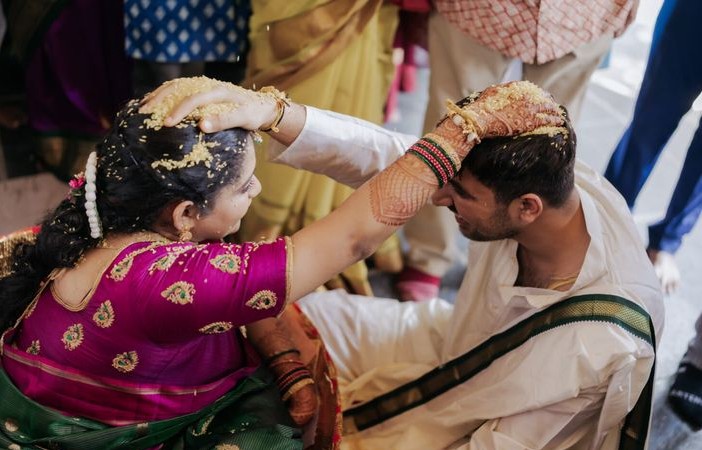
While the wedding day is the grand celebration, Indian weddings extend beyond the ceremony with meaningful post-wedding rituals that strengthen bonds between families. These customs vary across regions and religions but commonly include emotional and symbolic practices.
One such ritual is the ‘Vidaai’, where the bride bids farewell to her family in an emotional departure to begin her new journey. This is often followed by the groom’s family welcoming the bride with a warm ‘Griha Pravesh’ ceremony, marking her official entry into her new home.
Other traditions like the ‘Reception’ provide an opportunity for extended families and friends to celebrate the newlyweds. Rituals like ‘Pag Phera’, where the bride returns to her parental home for the first time after marriage, further emphasize love and familial bonds. These traditions are steeped in love, blessings, and emotional connections that truly complete the wedding journey.
Final Thoughts
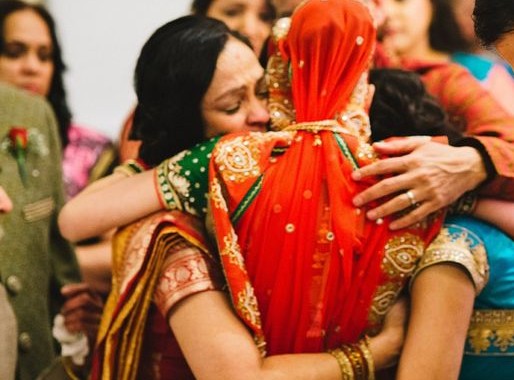
Planning a wedding in India is no small feat—it’s a beautiful mix of emotions, culture, traditions, and meticulous details. From deciding the budget to choosing the perfect outfit, every step plays a role in crafting a celebration that reflects your unique love story.
While the process can feel overwhelming, starting early and staying organized makes a world of difference. Surround yourself with experienced vendors, involve family members where needed, and never forget to take moments to enjoy the journey. After all, your wedding is not just a day—it’s the beginning of a lifetime together.
Whether you're dreaming of a lavish affair or an intimate gathering, FD Events is here to make your wedding seamless, memorable, and full of joy. Let us handle the stress while you make memories that last forever.